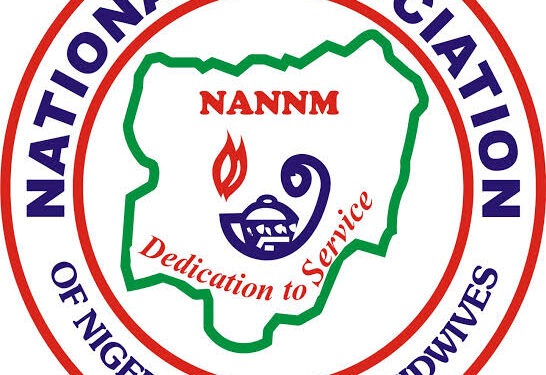The federal government has agreed to implement key structural reforms that will improve the welfare and professional standing of nurses across the country as the National Association of Nigerian Nurses and Midwives (NANNM), suspended its 7-day warning strike during the weekend.
The strike, which disrupted healthcare services across the country as nurses and midwives protest unresolved issues concerning their welfare, professional recognition, and working conditions, was called off after extensive deliberations that led to mutual agreements and key resolutions by both parties.
A Memorandum of Understanding (MoU) was reached at the end of a reconciliation meeting held on Friday August 1, 2025, between the federal government and the NANNM at the instance of the Minister of Labour and Employment, Muhammadu Maigari Dingyadi, to end the industrial dispute.
The 7-point agreement sighted by Umpire News was signed by Comrade Haruna Mamman, President of NANNM; Comrade T.A. Shettima, General Secretary of NANNM; Dafeta T. Tetshoma, Director of Human Resources at the Federal Ministry of Health & Social Welfare; and Falonipe Amos O., Director of Trade Union Services and Industrial Relations at the Federal Ministry of Labour and Employment.
A key point of the agreement was the assurance by the federal government to gazette the Nurses’ Scheme of Service which was approved by the National Council on Establishments in 2016.
The Federal Ministry of Health and Social Welfare will liaise with the Office of the Head of Civil Service of the Federation to expedite the process. The Director of Nursing and the General Secretary of NANNM were tasked with following up with the Head of Service to ensure completion within four weeks.
The Scheme outlined the career structure and professional framework for nurses in Nigeria. Its gazetting will bring long-awaited clarity and recognition to the nursing profession within the public service.
The federal government acknowledged the union’s proposals on professional allowances, which included a 30 per cent consolidated shift duty allowance, a 20 per cent annual specialist allowance and an upward review of uniform allowance to 300,000 per annum.
A 4 per cent consolidated call duty allowance, 35 percent teaching allowance, and the introduction of allowances for excess workload, burnout, and retention were also agreed on.
Further, it was agreed that within a fortnight, the federal ministry of health and social welfare would engage in further discussions with major health professional unions, alongside the National Salaries, Incomes and Wages Commission, the Federal Ministry of Finance, the Budget Office, the Head of Civil Service, and the Ministry of Labour and Employment, to determine the way forward.
Regarding the centralisation of internship placements for graduate nurses, the Nursing and Midwifery Council of Nigeria was directed to finalise modalities for centralised placement, similar to other professional groups, while ensuring equitable distribution across states to avoid concentration in Abuja and Lagos.
The federal government assured the union of fair representation of nurses in the Boards of Tertiary Health Institutions, in line with the Acts establishing those institutions.
Additionally, the statutory Governing Board of the Nursing and Midwifery Council of Nigeria will be constituted as soon as possible.
Concerning employment and infrastructure, the Ministry of Health and Social Welfare revealed that waivers had been granted for the recruitment of over 14,000 health workers in 2024, with nurses making up approximately 60 percent of the total.
“The recruitment process for 2024 had been completed, while preparations for the 2025 waiver process have commenced,’’ the MoU stated.
After signing of the MoU, NANNM agreed to immediately call off its strike action, with both parties in agreement that no nurse would be victimised for participating in the industrial action.





































